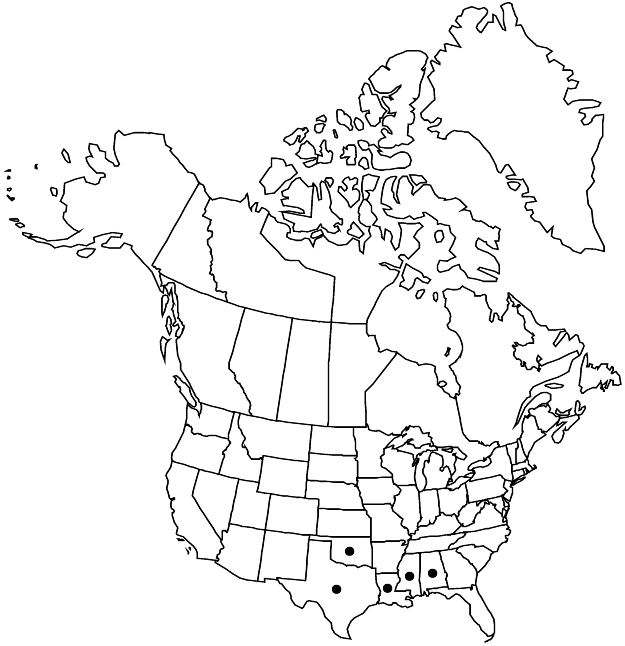Vitis mustangensis
Proc. Acad. Nat. Sci. Philadelphia 13: 451. 1862.
Plants high climbing, sparsely branched. Branches: bark exfoliating in shreds; nodal diaphragms 1.5–3 mm thick; branchlets subterete to terete, densely to sparsely tomentose, growing tips not enveloped by unfolding leaves; tendrils along length of branchlets, persistent, branched, tendrils (or inflorescences) at only 2 consecutive nodes; nodes not red-banded. Leaves: stipules 1.5–4 mm; petiole 1/2–3/4 blade; blade cordate to nearly reniform, 6–14 cm, usually unlobed but sometimes 3-shouldered or deeply 3–5 lobed, apex acute to obtuse, abaxial surface not glaucous, densely white to rusty tomentose, concealed (except sometimes veins) by hairs, adaxial surface floccose to glabrate. Inflorescences 4–10 cm. Flowers functionally unisexual. Berries usually black, sometimes dark red, slightly or not glaucous, globose, 12+ mm diam., skin separating from pulp; lenticels absent. 2n = 38.
Phenology: Flowering Apr–early Jun; fruiting Aug–Sep.
Habitat: Woodland edges, fencerows, thickets, lowland woods, disturbed areas.
Elevation: 0–700 m.
Distribution

Ala., La., Miss., Okla., Tex.
Discussion
In several early publications (for example, T. V. Munson 1909), Vitis mustangensis was known as V. candicans Engelmann ex A. Gray. M. O. Moore (1991) argued that the name V. candicans is ambiguous and not identifiable with any species based on the original description, making the more recent name V. mustangensis the valid and legitimate one for this species.
Selected References
None.
Lower Taxa
"connate" is not a number.